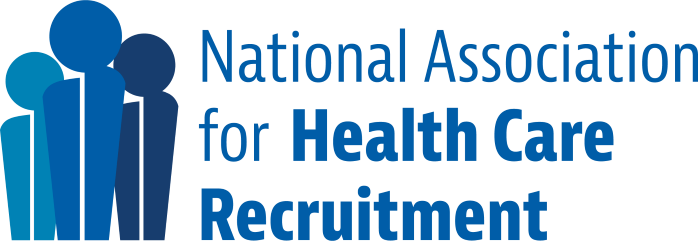Health care recruiters, honored today with National Health Care Recruiter Recognition Day, are often a piece of a complex puzzle in health care staffing. But did you know a role as a health care recruiter is often a great move for a nurse looking for other nursing career options?
Theresa Mazzaro, RN, CHCR, RACR, and senior talent acquisition specialist with Johns Hopkins Healthcare LLC, is president of the National Association for Health Care Recruitment and says the career is a great move for nurses who want to explore new roles or who have a particular interest in human resources work.
Health care recruiters help bring together job seekers with organizations that need their specific skill set. A nursing background gives recruiters a significant boost in understanding how units work, what the responsibilities of different nursing roles are, the typical shift needs and requirements, and the exact skills that each nurse specialty requires.
The career merges an understanding of health care on the clinical level and on the hiring and administrative level, so many nurses will need training to get up to speed on human resources rules and regulations, but Mazzaro says that’s not a problem. Many nurses might be intrigued by a health care recruiter role, but think they aren’t qualified, says Mazzaro. “As an RN, you can do anything,” she says. “You can be taught and learn to do anything. My advice if they want to pivot they that they can be taught the human resources aspect of the role.”
If you’re thinking of merging an interest in the administrative side of nursing and your nursing skills, Mazzaro says the two paths converge to create a fulfilling career. “There’s a certain personality type that is perfectly suited for this role,” she says. Because recruiters are continually interacting with job seekers and employers, an outgoing nurse who enjoys the constant work with different parties will find this role a good match. Nurses excel at critical thinking skills and as a health care recruiter, those skills are used constantly, she says.
Mazzaro says recruiters aren’t expected to know each nursing role, but good recruiters will learn about them enough to help hiring managers find the nurses they need. For instance, she says, it doesn’t matter if a nurse who is now a health care recruiter has never worked in the OR. But if that person is recruiting for an OR nurse, finding out about the job needs requires an extra step of holding an intake session or maybe even shadowing in the OR to find out what the nurses do. Then when a recruiter meets with a job seeker for an interview, they will have a much better understanding of what makes a good candidate to send to the hiring manager.
Mazzaro says any health care recruiter should earn credentials as a Certified Health Care Recruiter. They should also consider joining a professional organization like the National Association for Health Care Recruitment. “All of that information and content is curated for you,” she says. And joining isn’t as rewarding or effective as being an active member. “Get involved by attending conferences, listening to webinars, and learning from speakers,” she says. “Put in the time and get every piece of information you can.” Find out about best practices to make your own work better.
Mazzaro says a health care recruiter role is different from shift work that a nurse might be used to. The role is generally more of a traditional work week schedule and is an exempt position, so even if you work overtime, your pay rate doesn’t change. But the ability to make an impact for an organization, particularly one in which you believe in its mission and values, is exciting.
Placing the right nurse in the right role with the best organization is complex. “It’s truly important,” she says. “As a recruiter, you realize how one nurse is going to impact so many people. But as a recruiter, your impact is more than that. You have direct impact on how a unit, a team and a hospital is going to run. Ultimately the people you hire could be caring for someone like your mother. I always keep that in the back of my mind.”
- WOC Nurses Week Highlights Specialty - April 16, 2024
- Honoring Radiology Nurses Day on April 12 - April 12, 2024
- Travel Offers New Career Possibilities - April 8, 2024



